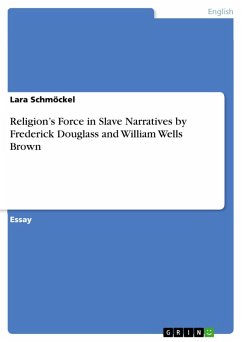Seminar paper from the year 2013 in the subject English Language and Literature Studies - Literature, grade: 1,3, University of Mannheim, language: English, abstract: Butler states in an interview that she responded to a present sense of shame for older African American generations, who reputedly showed humility towards their white masters: "Kindred was a kind of reaction to some of the things going on during the sixties when people were feeling ashamed of, or more strongly, angry with their parents for not having improved things faster, and I wanted to take a person from today and send that person back to slavery." The second chapter focuses on how the problem of historiography of slavery is depicted in Kindred. The third chapter explores the relationships within the slave community as well as towards their master. Jacobs suggests to better understand slavery, one shall "go on a southern plantation, and call yourself a negro trader. Then there will be no concealment; and you will see and hear things that will seem to you impossible among human beings with immortal souls." Butler chooses a similar way by sending Dana to the antebellum South. Overall, the analysis foregrounds social-emotional issues according to Butler's intention: "I was trying to get people to feel slavery. I was trying to get across the kind of emotional and psychological stones that slavery threw at people."
Dieser Download kann aus rechtlichen Gründen nur mit Rechnungsadresse in A, B, BG, CY, CZ, D, DK, EW, E, FIN, F, GR, HR, H, IRL, I, LT, L, LR, M, NL, PL, P, R, S, SLO, SK ausgeliefert werden.









